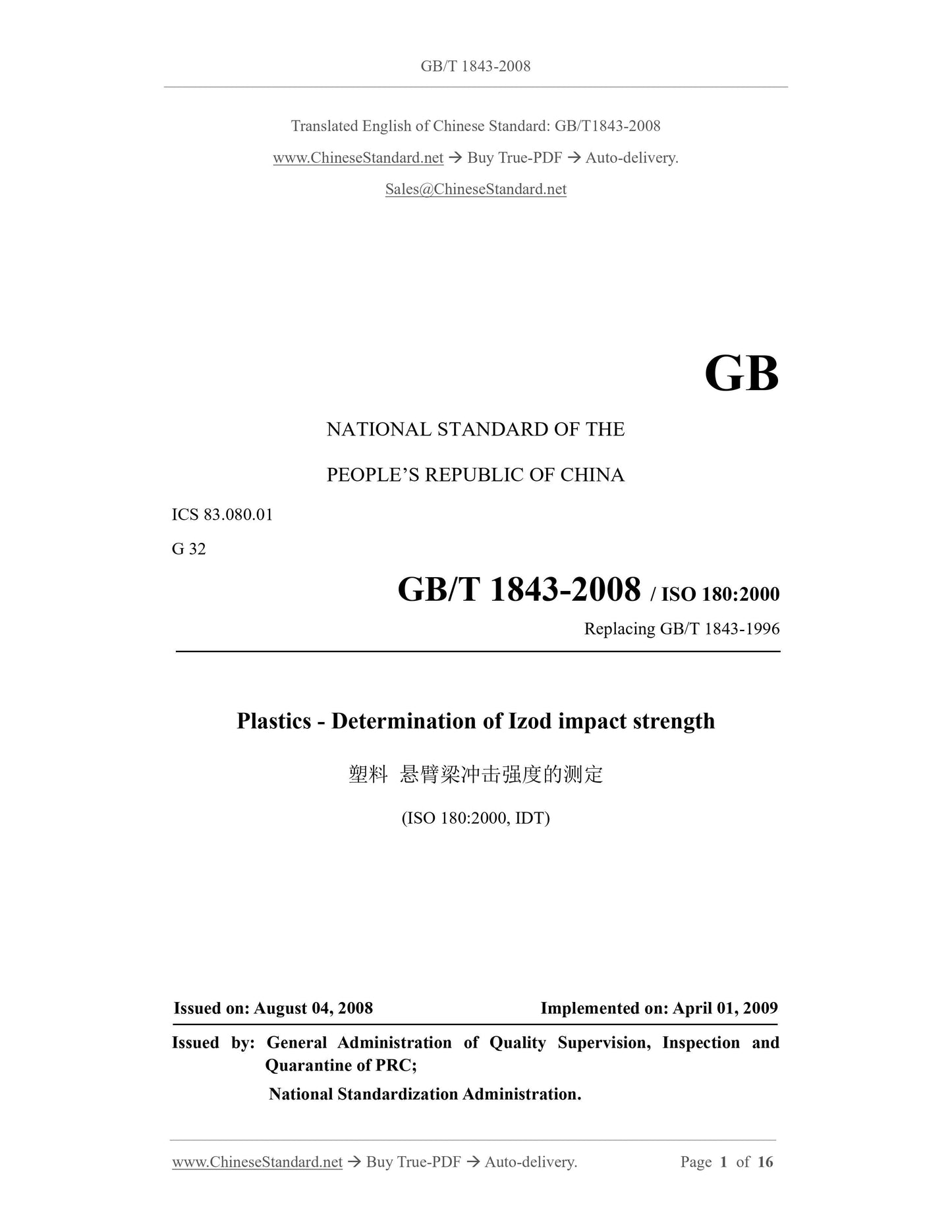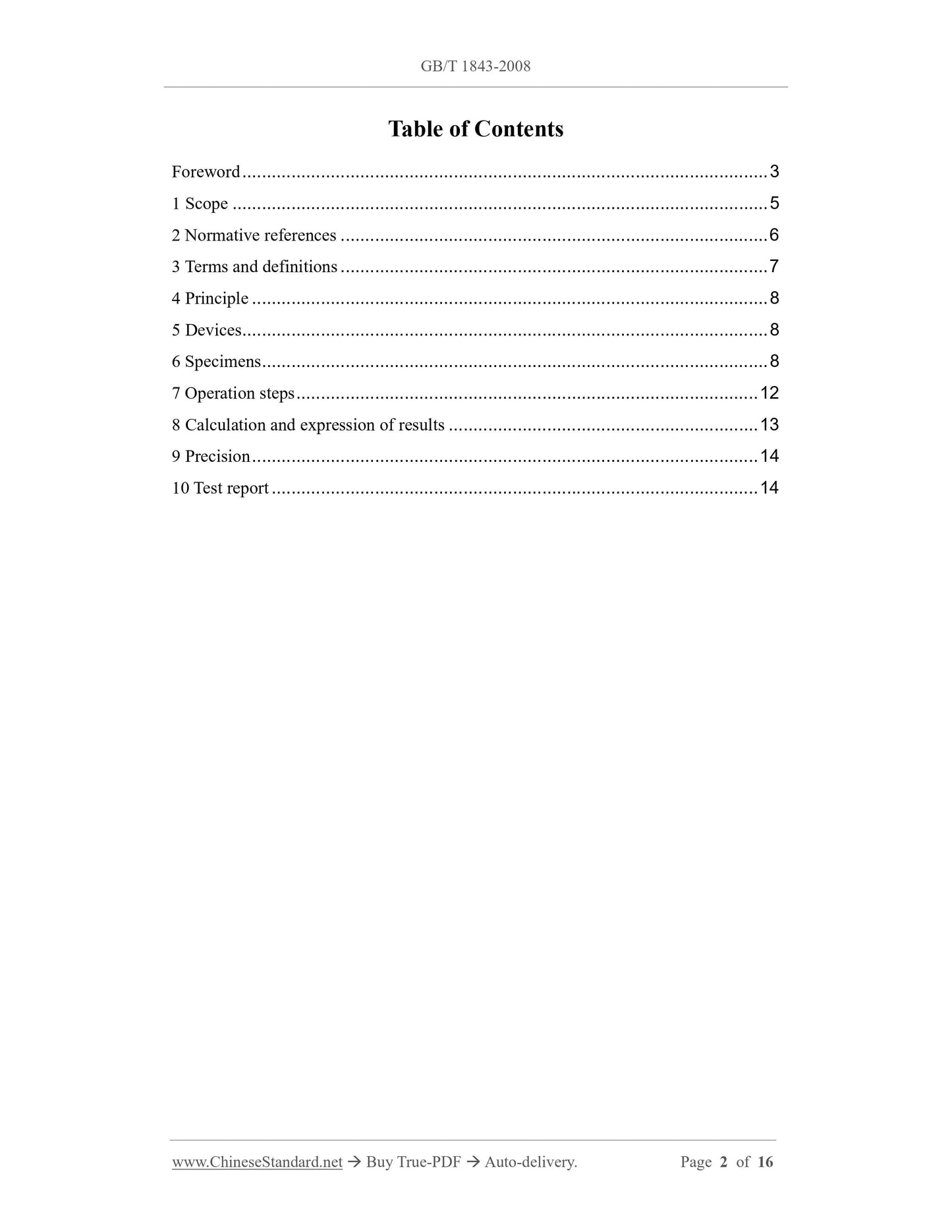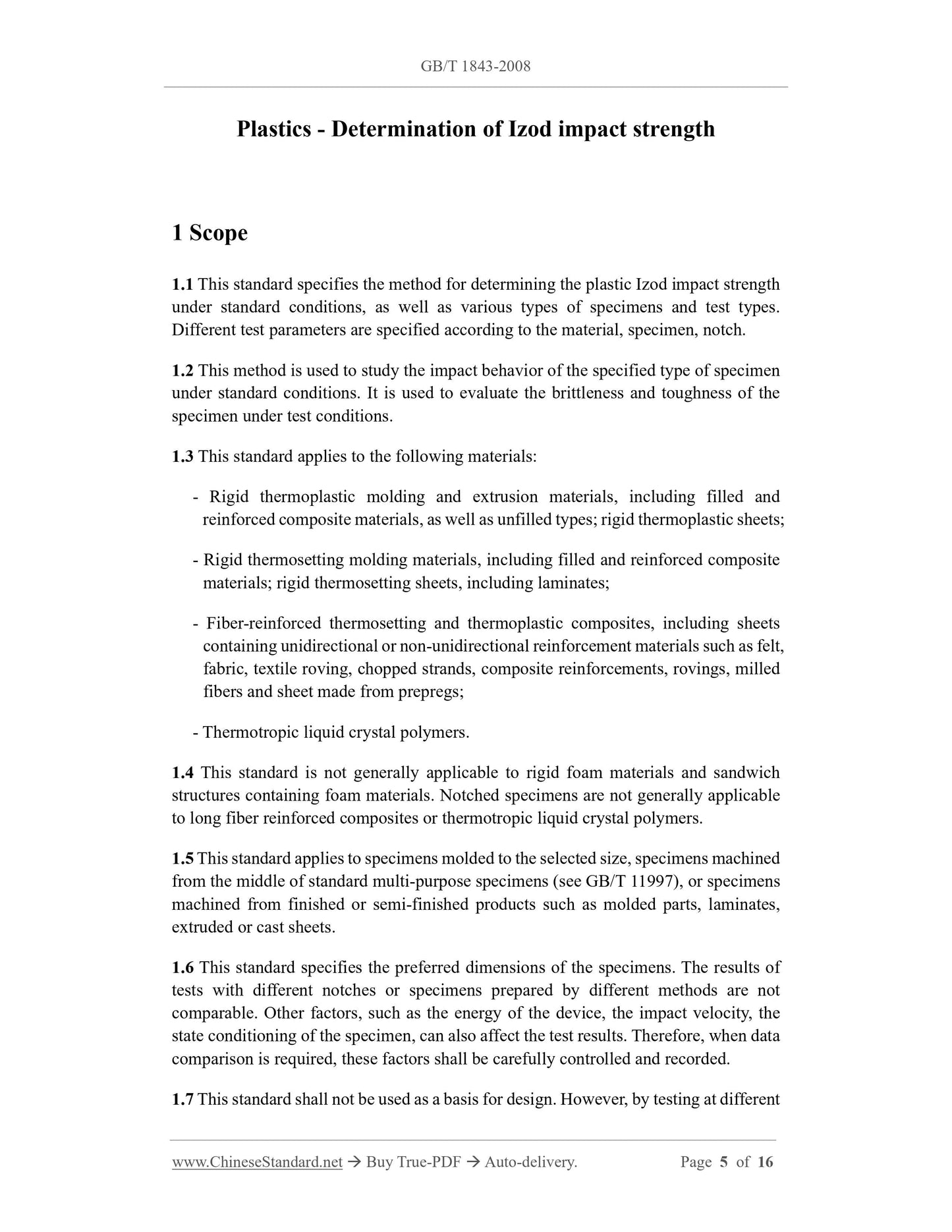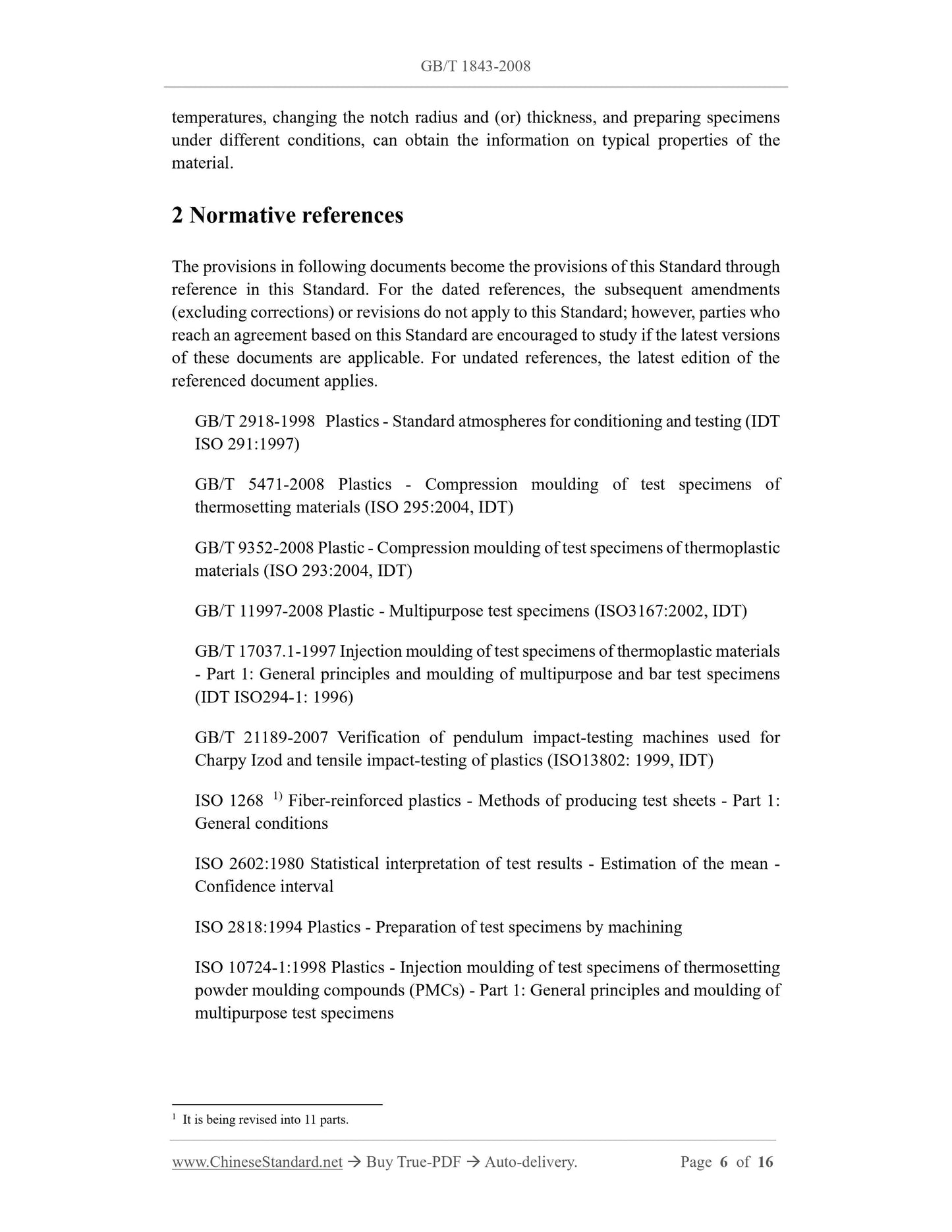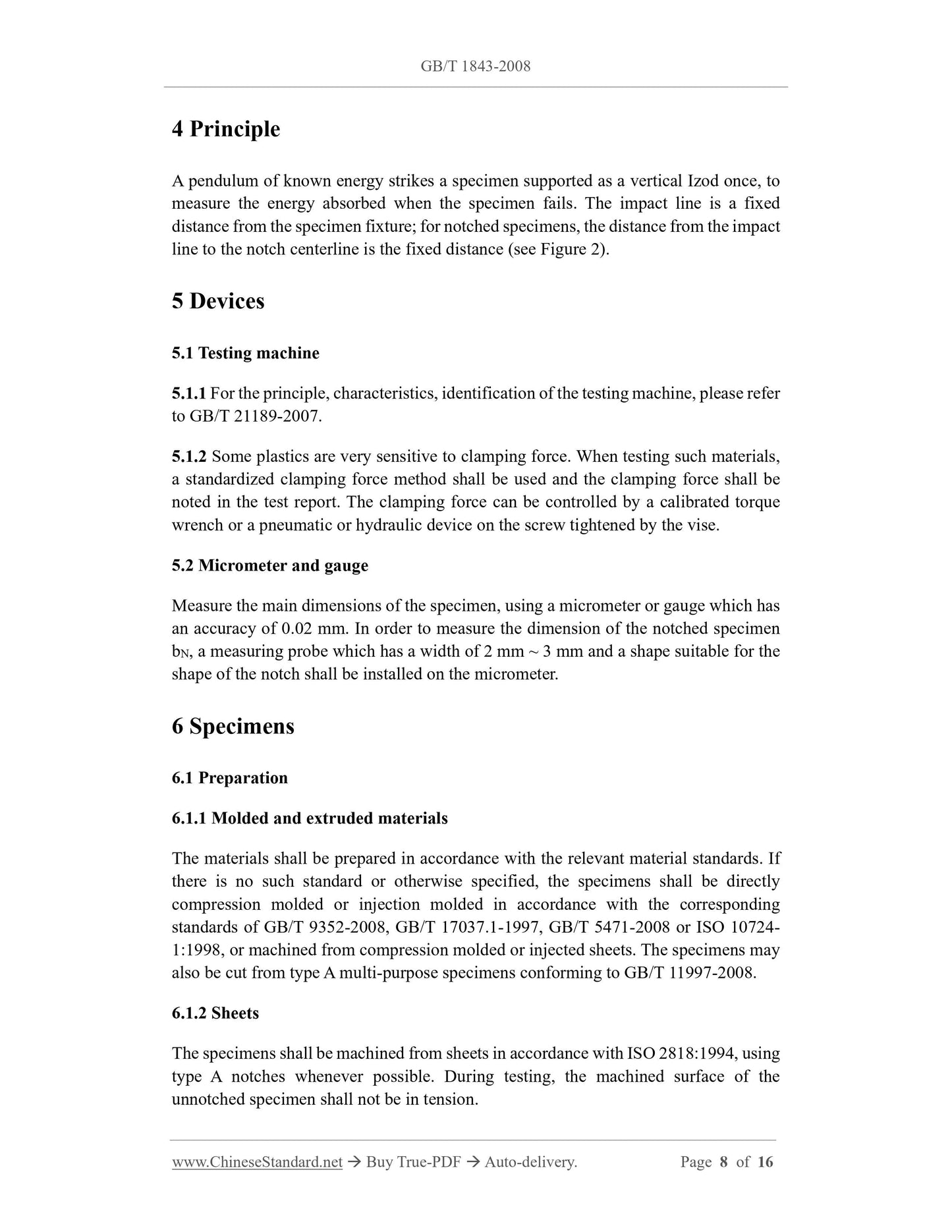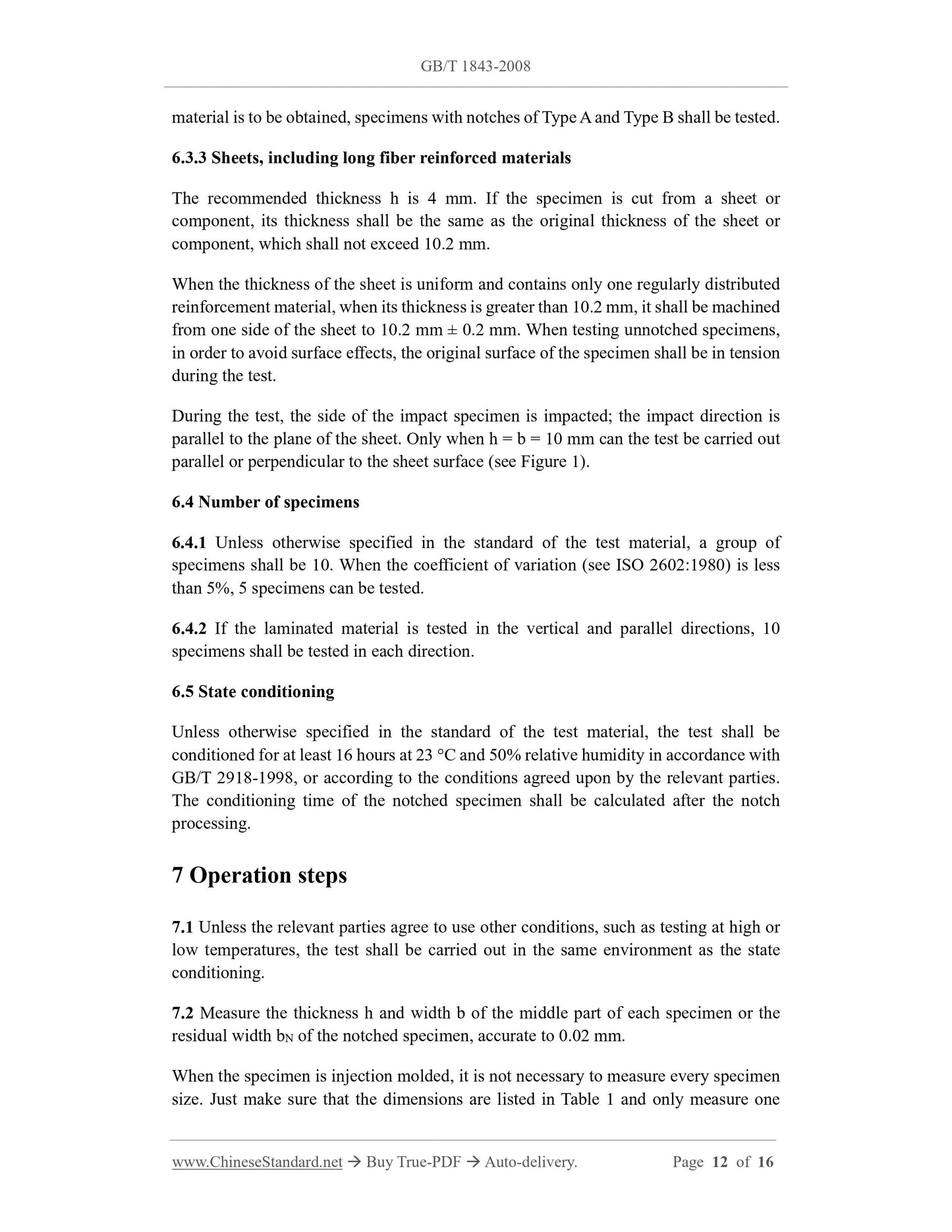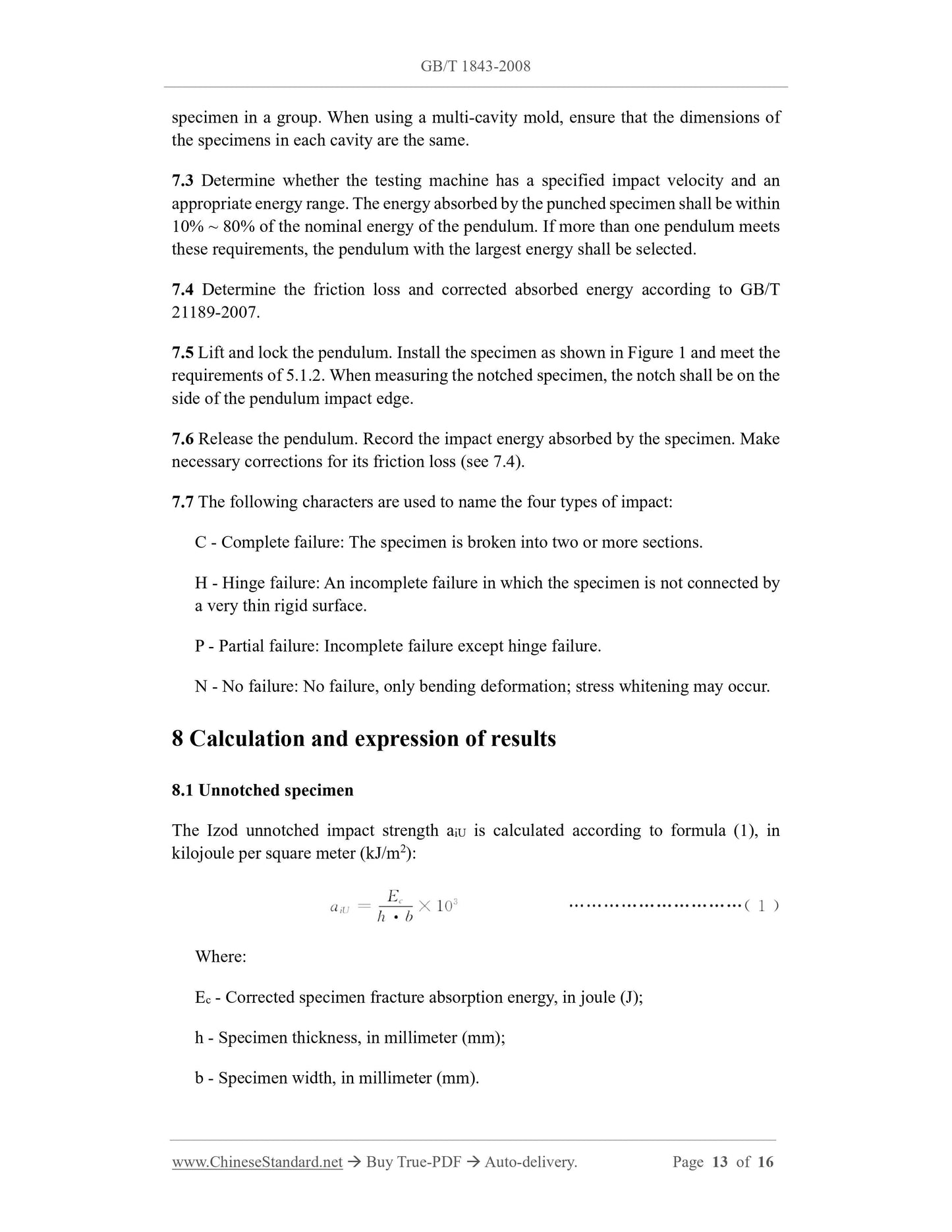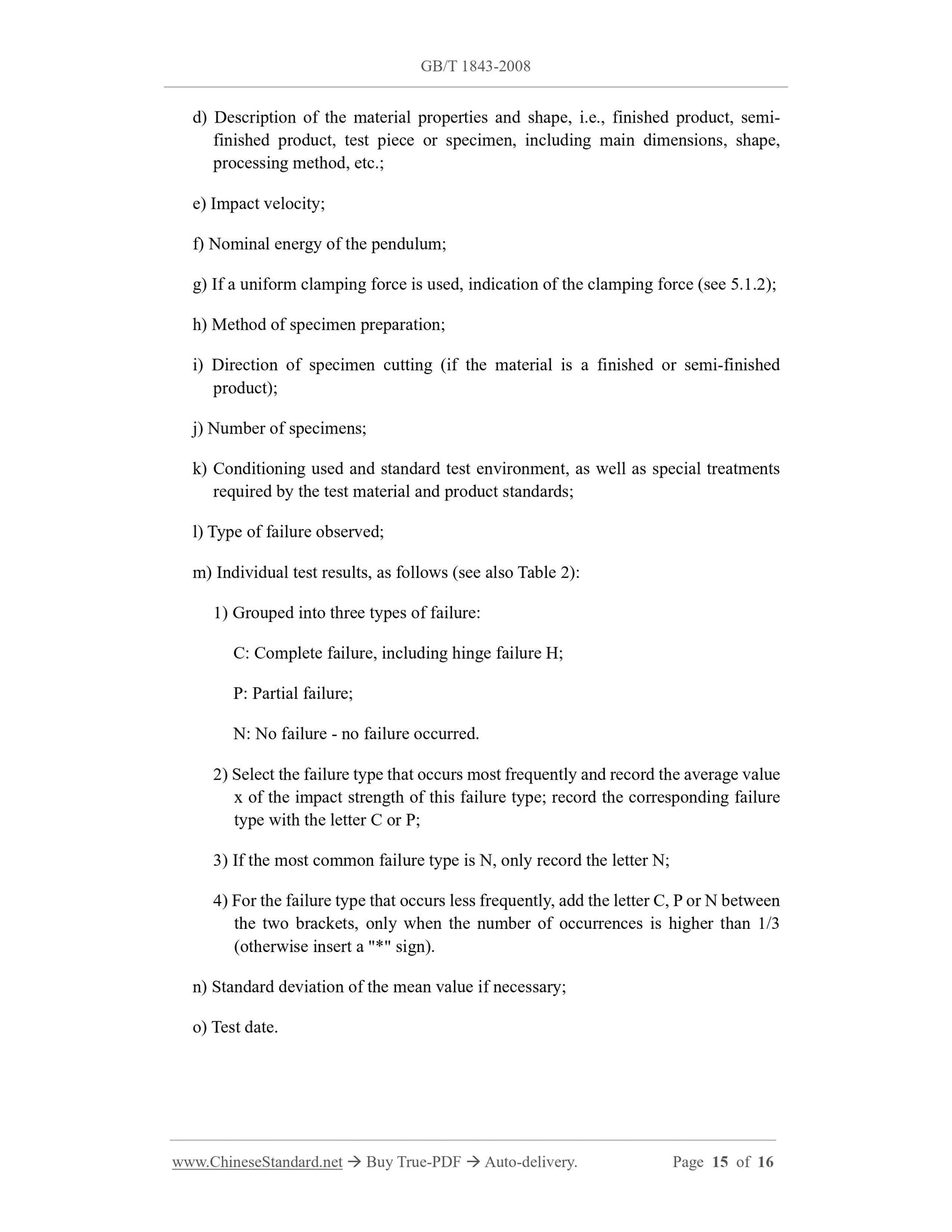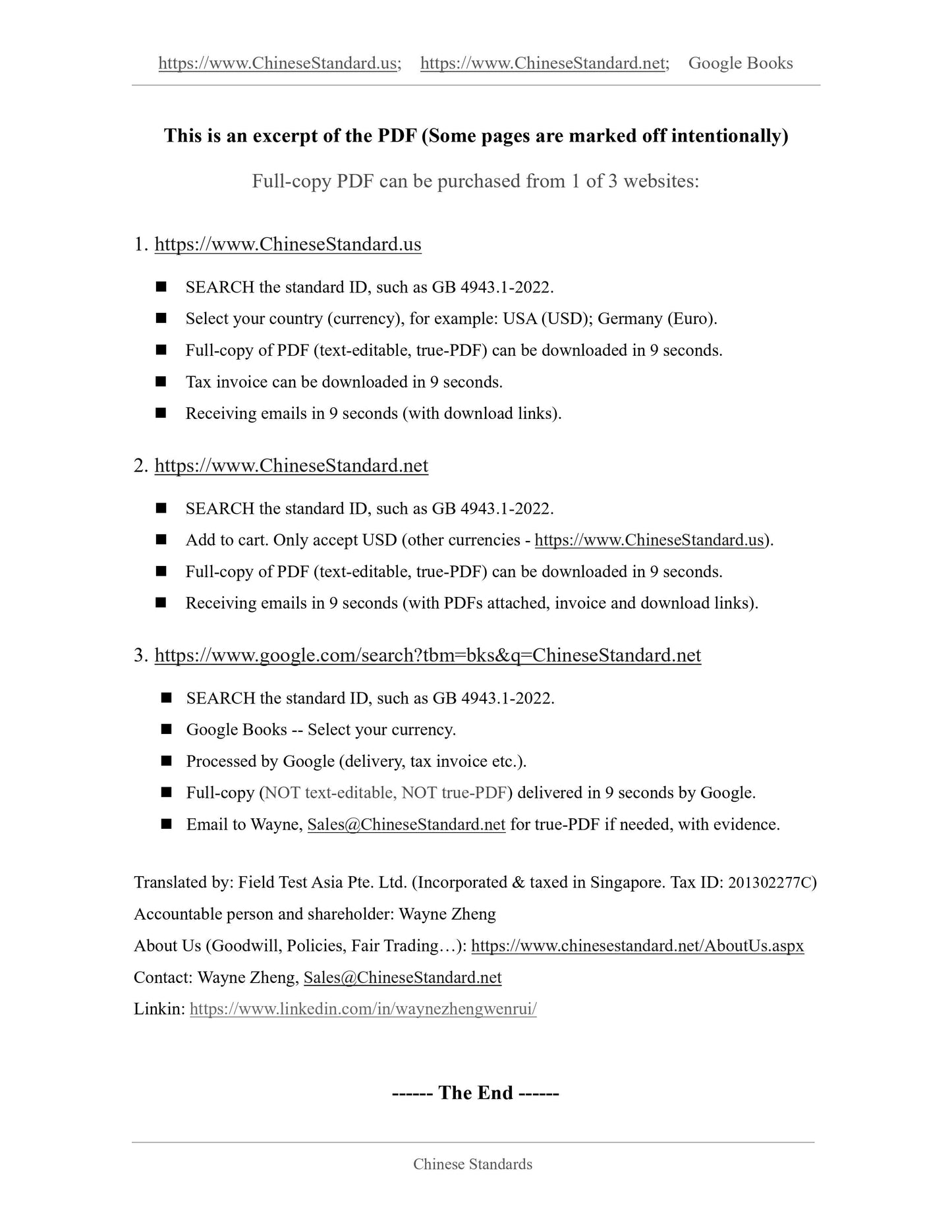1
/
of
9
www.ChineseStandard.us -- Field Test Asia Pte. Ltd.
GB/T 1843-2008 English PDF (GB/T1843-2008)
GB/T 1843-2008 English PDF (GB/T1843-2008)
Regular price
$115.00
Regular price
Sale price
$115.00
Unit price
/
per
Shipping calculated at checkout.
Couldn't load pickup availability
GB/T 1843-2008: Plastics - Determination of izod impact strength
Delivery: 9 seconds. Download (and Email) true-PDF + Invoice.Get Quotation: Click GB/T 1843-2008 (Self-service in 1-minute)
Newer / historical versions: GB/T 1843-2008
Preview True-PDF
Scope
1.1 This standard specifies the method for determining the plastic Izod impact strengthunder standard conditions, as well as various types of specimens and test types.
Different test parameters are specified according to the material, specimen, notch.
1.2 This method is used to study the impact behavior of the specified type of specimen
under standard conditions. It is used to evaluate the brittleness and toughness of the
specimen under test conditions.
1.3 This standard applies to the following materials:
- Rigid thermoplastic molding and extrusion materials, including filled and
reinforced composite materials, as well as unfilled types; rigid thermoplastic sheets;
- Rigid thermosetting molding materials, including filled and reinforced composite
materials; rigid thermosetting sheets, including laminates;
- Fiber-reinforced thermosetting and thermoplastic composites, including sheets
containing unidirectional or non-unidirectional reinforcement materials such as felt,
fabric, textile roving, chopped strands, composite reinforcements, rovings, milled
fibers and sheet made from prepregs;
- Thermotropic liquid crystal polymers.
1.4 This standard is not generally applicable to rigid foam materials and sandwich
structures containing foam materials. Notched specimens are not generally applicable
to long fiber reinforced composites or thermotropic liquid crystal polymers.
1.5 This standard applies to specimens molded to the selected size, specimens machined
from the middle of standard multi-purpose specimens (see GB/T 11997), or specimens
machined from finished or semi-finished products such as molded parts, laminates,
extruded or cast sheets.
1.6 This standard specifies the preferred dimensions of the specimens. The results of
tests with different notches or specimens prepared by different methods are not
comparable. Other factors, such as the energy of the device, the impact velocity, the
state conditioning of the specimen, can also affect the test results. Therefore, when data
comparison is required, these factors shall be carefully controlled and recorded.
1.7 This standard shall not be used as a basis for design. However, by testing at different
temperatures, changing the notch radius and (or) thickness, and preparing specimens
under different conditions, can obtain the information on typical properties of the
material.
Basic Data
| Standard ID | GB/T 1843-2008 (GB/T1843-2008) |
| Description (Translated English) | Plastics - Determination of izod impact strength |
| Sector / Industry | National Standard (Recommended) |
| Classification of Chinese Standard | G32 |
| Classification of International Standard | 83.080.01 |
| Word Count Estimation | 10,138 |
| Date of Issue | 2008-08-04 |
| Date of Implementation | 2009-04-01 |
| Older Standard (superseded by this standard) | GB/T 1843-1996 |
| Quoted Standard | GB/T 2918-1998; GB/T 5471-2008; GB/T 9352-2008; GB/T 11997-2008; GB/T 17037.1-1997; GB/T 21189-2007; ISO 1268; ISO 2602: 1980; ISO 2818: 1994; ISO 10724-1 |
| Adopted Standard | ISO 180-2000, IDT |
| Regulation (derived from) | National Standard Announcement 2008 No.14 (Total No.127) |
| Issuing agency(ies) | General Administration of Quality Supervision, Inspection and Quarantine of the People's Republic of China, Standardization Administration of the People's Republic of China |
| Summary | This standard specifies the method for the determination under standard conditions Izod impact strength of plastics. And a variety of sample types and the different types of tests. According to the material, notched specimen and provides various test parameters. This method is used under standard conditions to study the impact of the type of behavior required sample. And for the sample under test conditions evaluate brittleness and toughness. |
Share
